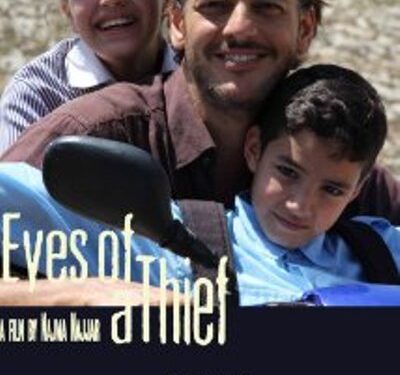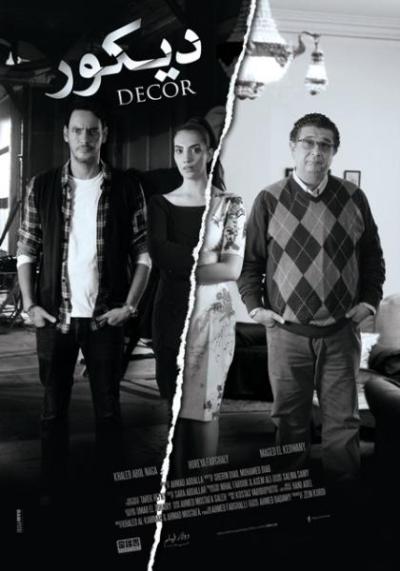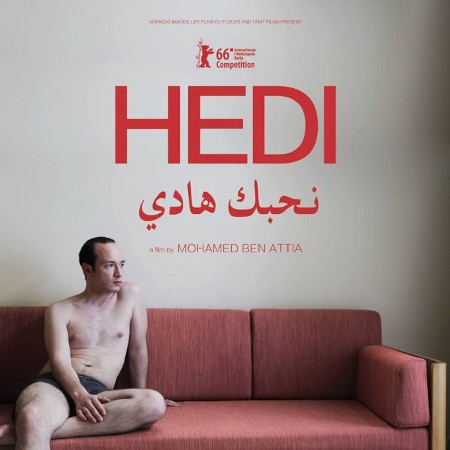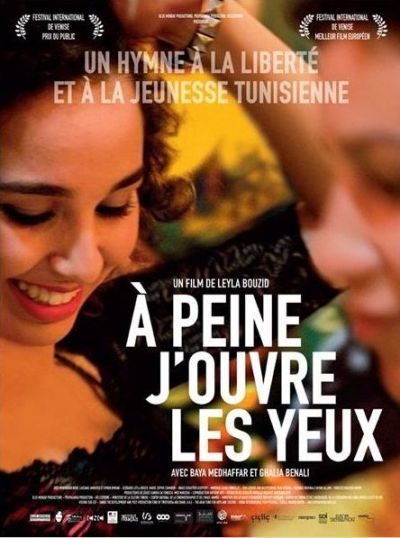Invited to a reception given during the last edition of the Cannes Film Festival, Mr. Serge Basilewsky, president of the association “Ciné Croisette” which organizes the Tunisian film festival in Cannes, insisted on the success of the March 2016 session of this event, a success confirmed by Mr. Franck Chikli, deputy mayor of Cannes. The latter added that it had aroused the general astonishment: the public, mainly French, had come en masse to attend the projections.
Asked about this enthusiasm of the European public for Arabic cinema, Mr. Frank Chikli replied that according to him, Europeans discover Arab culture and are thirsty for knowledge of this culture. He added: “When we were young, we love watching American western films, we were all fans of John Wayne, and yet we cannot say that we identify with this American society there, but we were just curious, curious to know this world and this period. It is the same today with the Arabs, we are curious to know their culture. ”
Does this curiosity alone explain this craze?
Or are there other reasons?
Would Arab cinema have become more accessible and easier to understand by non-Arab? Does the foreign spectator allow easier identification with the characters of the films?
During an interview, to a question posed by a journalist who asked him if he aims to lead an international career like that of his compatriot Omar Sharif, the actor Egyptian Khaled Abol Naga had replied that he wished, not by playing in foreign films but rather hoping that Arab cinema becomes international, which would be possible if this cinema is universalized. He had added that he hoped that Arab cinema could export more and more and that the themes treated are increasingly universal while keeping their particularities.
The Arab films that have left the folk side to deal with universal subjects are those who have the most fortune abroad, even if, paradoxically, sometimes commercial success is not there in their own countries. These films have moved away from stereotypes, they no longer focus on “native” in its “natural” environment, but deal with universal, human subjects, and ask questions that are asked all over the world.
Egyptian film poster “Decor”
As examples, we can cite four films that have been successful in Europe in Europe in the past two years, either with the public of special events, or in festivals, and which have in common the fact of dealing precisely with universal themes: the Palestinian film “Eyes of the Thief”, the Egyptian film “Decor” and the two Tunisian films “NHEBBIK Hédi” and “Barely I open my eyes”.
Present at the last edition of Cannes Film FestivalPalestinian director Najwa Najjar said that her film “EYES OF THE THIEFWas screened in several European cities where it was made to feel very welcome. But what made him a lot of pleasure was the great success he has been during his programming last April in Florence, Italy, as part of the Middle East Now festival. She had been surprised by the number of spectators who came to attend the screening. The cinema was archical and the Italian public was enthusiastic.
“Eyes of a Thief” is the story of a Palestinian resistance fighter who returns home after 10 years of imprisonment and who goes in search of his lost little daughter.
While she could have shown a Palestinian fighter hero or terrorist, the director preferred to show a sensitive and complex man. In reality, although we have a brief overview of Palestinian daily life, it is the human who takes precedence in this film. This story that takes place in Palestine, in a very particular context, tells with great subtlety, a story, feelings, emotions and human concerns, which can be shared by all.
Always in Cannes, a co -organizer of Panorama of the cinemas of the Maghreb and Middle East in Paris, said it was also very surprised by the immense success of the Egyptian film “Decor», From director Ahmed Abdallah, projected last April during the 11th edition of the Panorama. The success had been so important that following the public’s request, a new screening had been scheduled for June.
This film also deals with a universal theme: the choice. Make a choice of life and assume it or not. At a time of his life, every human being stops and asks questions about the decisions he has taken, about the will and the power to assume and continue, or to change them. And this is what Maha the heroine of this feature film does.
This film, shot in a very intelligent way, forces the spectator to accompany Maha in his questions by following her in his different lives, real and imaginary, until she finally decides what she really wants. “Decor” is undoubtedly one of the most beautiful Egyptian cinematographic works in recent years.
Tunisian film poster ” Nhebek Hédi“”
Likewise, his universal theme may explain the reason why the Tunisian film “Nhebbek Hedi” by Mohamed Ben Attia, was the first Arab film selected, for 20 years, in official competition from the Berlin International Film Festival in 2016. They even won two awards.
This film tells the story of a young man who leads a very rowed, very monotonous life, obeying conventional social rules, leaving his mother, invasive and authoritarian, and his brother organize his marriage, make choices for him and make decisions in his place … Until the day he meets Rym who, in contrast, leads a free, carefree life. He will live with her a passionate romantic relationship and will be forced to make choices and finally make his own decisions.
“Hédi is ultimately a universal character, an individual whether he is a man or a woman, oppressed by society. This character exists everywhere else with the only difference that constraints are not the same, ”explained Mohamed Ben Attia
Similarly, which explains the success of the film to the 25 awards that is “Barely I open my eyesFrom Tunisian Leila Bouzid, may be the fact that he shows to Europeans that our young Arabs have the same aspirations as all young people around the world: freedom.
Tunisian film poster “Barely I open my eyes”
Although the events of the film take place in a particular context, namely the period just before the Revolution, the theme itself is universal. All young people, whatever their country, would like to emancipate from their parents and society, be free and be able to express themselves without restraint or oppression. In reality, everyone live the same emotions, discover love and sex, face society, want to assert themselves and make their own choices….
Like all these young people, Farah, the heroine of the film discovers the world of adults and struggles with the rules and obstacles that we want to impose on him, both in the family level, as well as societal or political. She tries to assert herself and free herself from all these links that we want to impose on her. And unlike the wishes of her parents who would like to see her doing medicine studies, she wants to become a singer. Farah wants to make her voice heard, both literally and figuratively. She wants to raise her voice as Youssef Chahine says so well in her film “Al Massir”.
Has this craze for Arab cinema increased after the Arab revolutions?
Certainly. These revolutions made it possible to put these Arab peoples under the spotlight whose Europeans did not know much except for stereotypes and prejudices. They allowed Europeans to discover that the Arabs have the same concerns, aspirations, ambitions, dreams and emotions as all the peoples of the whole world. That they especially want to get rid of the yoke of dictatorships and simply aspire to live!
Does this craze open new perspectives for Arabic cinema? Will it result in a larger distribution of Arab films in the cinemas of these European countries or will it be limited to various events and festivals, so just to a certain elite?
Neila Driss
Read on the same subject:











